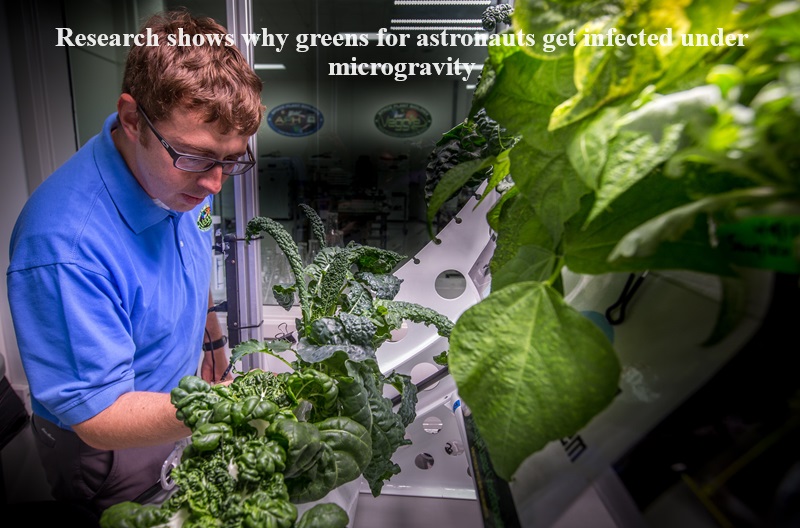
Research from the University of Delaware has shed light on potential health risks associated with growing salads in the weightlessness of the International Space Station (ISS). While NASA has been cultivating space-grown lettuce on the ISS for over three years in controlled chambers mimicking the necessary conditions for plant growth, a recent study has unveiled concerns about pathogenic bacteria and fungi present on the ISS. Published in Scientific Reports and npj Microgravity, the study suggests that these microbes could pose a threat to astronauts’ health and potentially lead to foodborne illness outbreaks.
The University of Delaware researchers conducted the study by growing lettuce in conditions simulating the weightless environment of the ISS. Surprisingly, the plants exposed to simulated microgravity were found to be more susceptible to infections from Salmonella. The study revealed that under space conditions, the plant’s stomata, the openings through which it breathes, remain open, making it more vulnerable to bacterial contamination.
NASA has been exploring sustainable food production in space to support long-duration missions, such as those planned for the Moon and Mars. However, ensuring the safety of space-grown crops is crucial for the well-being of astronauts and the success of future space missions. The findings highlight the need for comprehensive measures to mitigate microbial contamination in space-grown produce and enhance food safety protocols on the ISS and beyond.

Post Your Comments